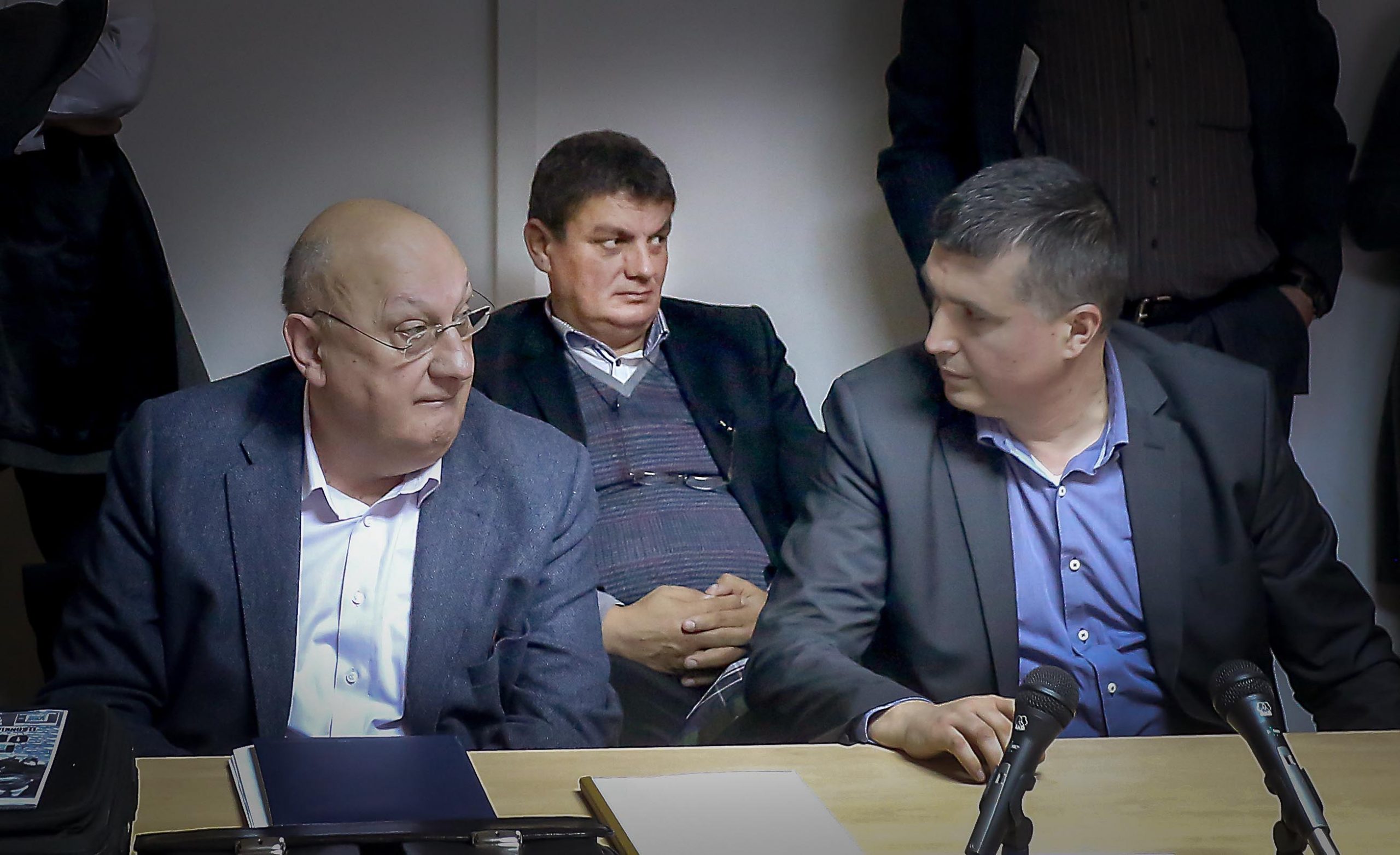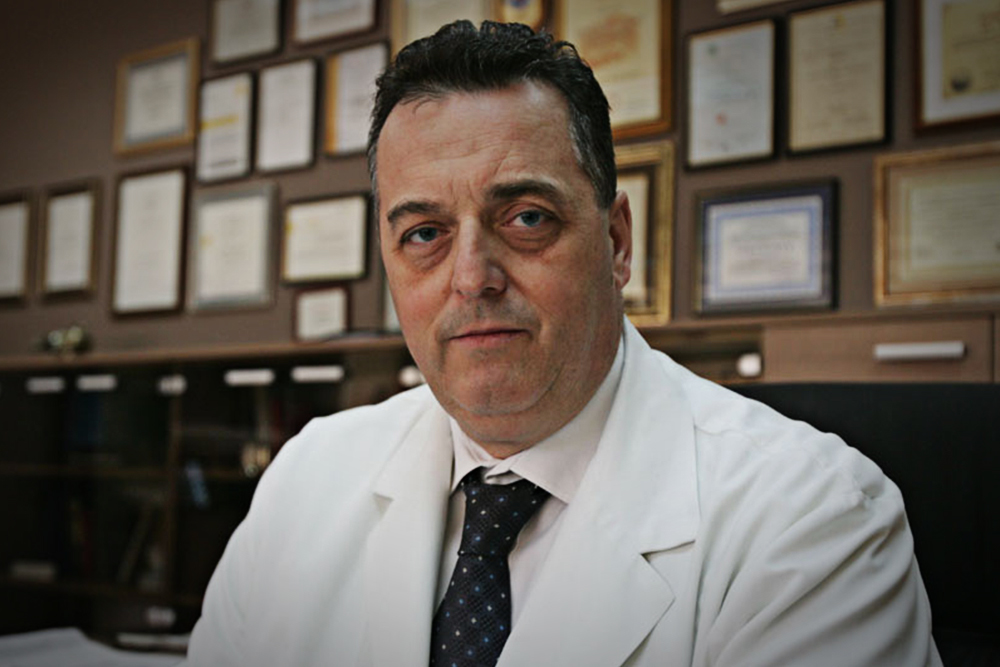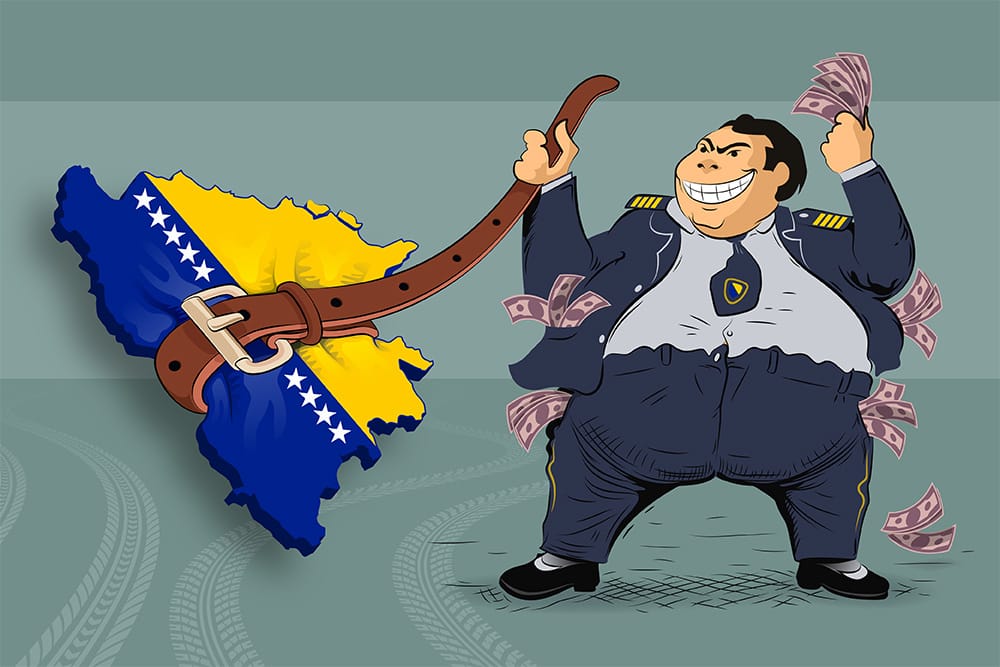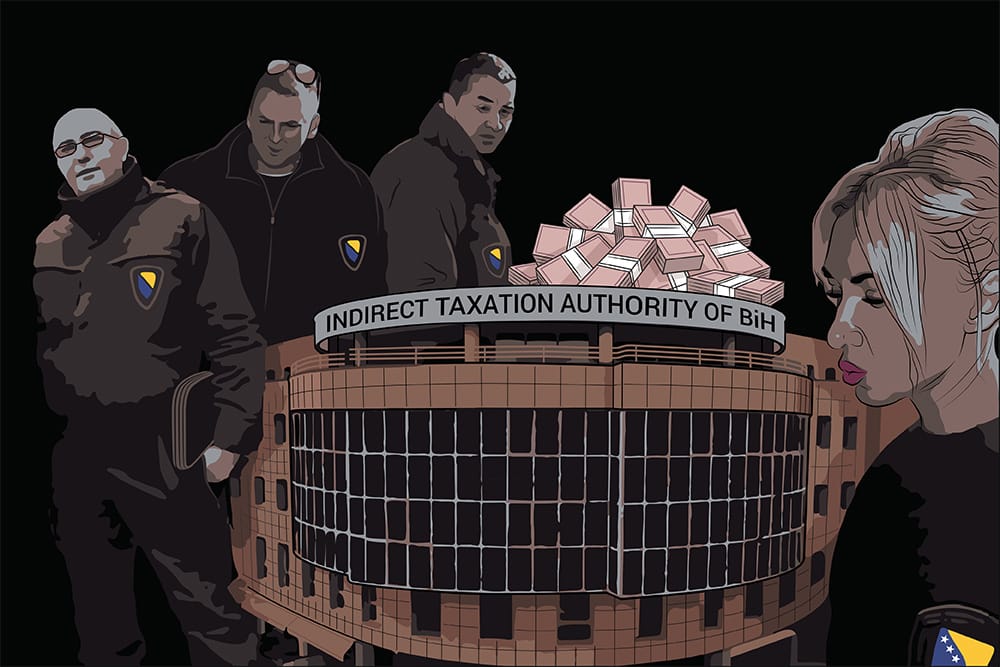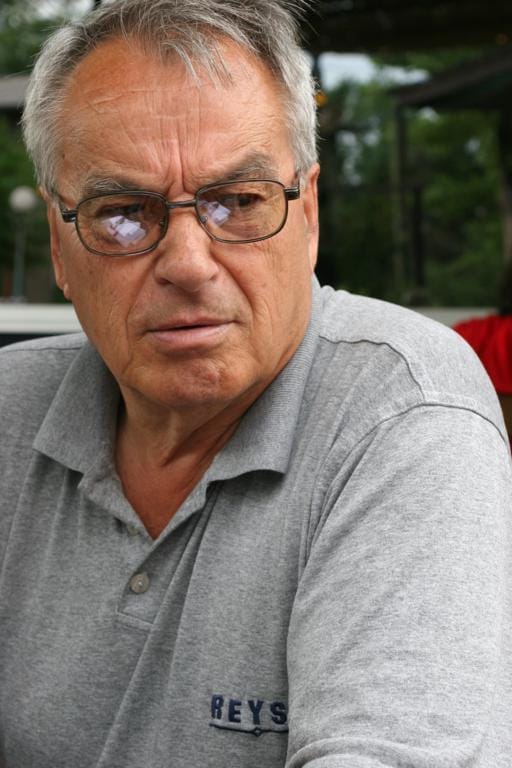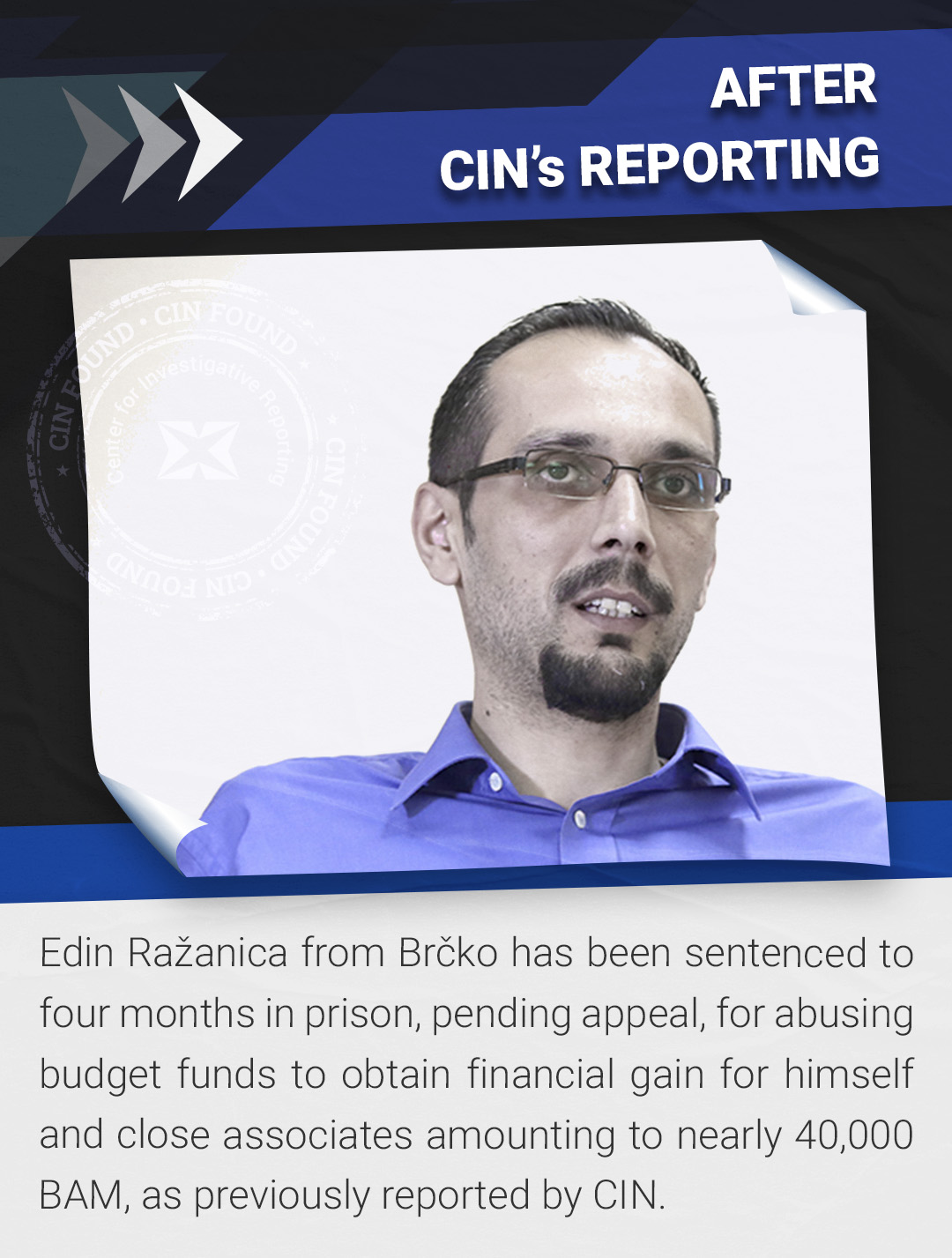The acting director of the new Institute for Forensic Medicine of the Republika Srpska (RS) said he lied in confessions to investigators in 1996 who were looking into whether he took money from a murder suspect to help her avoid prosecution.
Željko Karan, 47, is the leading pathologist in the RS and a man whose testimony has determined the guilt and innocence of hundreds of people. Yet according to court records examined by the Center for Investigative Reporting in Sarajevo (CIN), Karan and a colleague he frequently works with, Milko Marić, 48, a ballistic expert from Banja Luka, have been involved in at least two cases where family members of defendants allege the pair asked for money to coach witnesses and influence the evidence. The changes meant the difference between evidence pointing to a murder or a suicide. CIN found other cases where there were significant irregularities in their work.

In fact, in a little known case in the Srbac court, the RS’s leading pathologist and Marić were indicted in 1997 for taking bribes. Karan told investigators two very different stories at the time. According to a transcript of his initial interrogation shortly after his arrest, he said the pair asked for 10,000 DEM to coach a suspect in a reconstruction of a 1995 murder so that her testimony would prove she did not kill her husband. He later changed his story to say they asked a suspect for money to pay for the costs of their reconstruction. Now Karan told CIN reporters neither story was true and that in reality he was framed.
‘It is my right to construct my defense any way I want to’ Karan when asked to explain why he admitted to asking for a bribe. ‘When the system jumps on you its best to get away with as little damage as possible’ he said. Karan said he needed time to correct the problem.
Karan and Marić would later receive an unusual amnesty that halted their prosecution when the acting RS Minister of Justice said they were good at their jobs and needed by the court system. That pardon is suspect because it does not show up in any official logs from the time.
Meanwhile, the pair continues to help decide the fates of dozens of people per year. The team’s credibility is so poor that one Banja Luka prosecutor has quietly told his staff not to work with them.
Buying Testimony

The case against Karan and Marić goes back to 1995 and a suicide in the tiny village of Kaoci between Srbac and Derventa.
The evidence that Mirjana Andrić killed her common law husband Momir Brkić in December of that year seemed indisputable. According to an investigation at the scene, she had powder residue on her hands from the firing of the pistol. He didn’t.
According to court transcripts, Brkić and Andrić were having problems. Brkić, then 26, was under treatment for post traumatic stress syndrome and was depressed over the recent loss of three close friends, witnesses said. He hinted to neighbors he would end his life and talked about suicide. The two fought regularly. During one such fight Andrić said Brkić put a gun to his heart and pulled the trigger. She ran for a neighbor to call for help and then held his hand as he died.
The next day an investigative judge asked Karan to inspect the body.
Police technicians at the scene took wax imprints of the hands of Andrić and Brkić, but the court would later find the officers made serious mistakes in their crime scene tests. Karan concluded the gun was pushed against the sweater of Brkić and a shot fired but he said in his initial report that is was not immediately clear whether it was a suicide.
A month later, the powder residue results made prosecutors suspicious. The court ordered a reconstruction of the scene by Karan and Marić and later an independent analysis from a lab in Novi Sad.

In later police interrogations, Karan said that he and Marić launched their plan when he heard about the residue test results, even though Karan believed the case was a classic suicide. Marić knew that Andrić’s father had jobs overseas and had money, Marić later told police. Karan now says his testimony was wrong. Marić has refused to comment on his past testimony.
The powder residue evidence was problematic. The tests were poorly done, incomplete and inconclusive, the court later ruled. Brkić’s hands were never fully tested and Andrić could have gotten the residue from holding Brkić’s hands.
Karan and Marić asked to meet Andrić at her lawyer’s office and asked for 10,000 DEM. Andric’s sister Ljiljana Gužvić paid the bribe to Karan and Marić.
Marić coached Andrić’s lawyer Vesna Rujević about how her client should testify in the reconstruction Marić and Karan had devised, Karan told police at the time. But their report was never completed because the pair were arrested.
Gužvić had told police about the bribe and recorded the serial numbers of the bills. Police found the marked money in Marić and Karan’s possession. The two confessed.
Karan justified himself to the court by saying simply he needed the money.
‘I have a wife at home that doesn’t work, a mother that doesn’t get her pension and a small child. I worked for the RS judiciary and RS military almost four years for next to no salary and nobody cared what I live on or how I make ends meet’ the unrepentant Karan told an investigative judge in a hearing from April of 1996.

That confession was a lie, Karan now says. He told CIN someone dropped the money off with his mother in an envelope. He said he did not look to see what was inside the envelope. Later that night police came and arrested him. He said he was framed.
Public prosecutor Milorad Barašin charged the two in the Basic Court in Srbac in April 1997, along with Andrić’s lawyer and another lawyer who knew about the bribery.
Andrić was eventually charged with murder. She would spend almost a decade defending herself in court. Only in 2006, after an appeal by prosecutors of a 2005 acquittal was rejected, did the case finally end.
‘I am not going to talk about the case because they ruined 10 years of my life’, Andrić said at her home in Kaoci. Andrić refused to speak to reporters out of fear, repeating that she went through ‘terrible torture’ during her seven months of detention. She later lost her job.
A conviction could have sentenced Karan and Marić to jail and removed them from ever testifying in court again. It didn’t. Despite the confessions, an unusual presidential amnesty stopped the case in January of 1999 before it was completed.
The man who recommended that amnesty, Milan Trbojević, then RS Minister of Justice, doesn’t regret the pardon and the team’s ethics don’t seem to bother him. He said Karan, as one of the few pathologists in the RS, was a valuable member of the court. Trbojević said Karan’s original report the day after the death had not been tampered with.
‘If I remember correctly, it was about a report that was proper, so it wasn’t changed, tampered with, or incorrect because of the reward, but he still allowed himself to take that compensation’ Trbojević said.
Trbojević is alone in remembering the amnesty. The RS president at the time, Nikola Poplašen, does not remember this decision, he told reporters from CIN.
By law, all such decisions must appear in the next Official Gazette. The gazette from Jan 21, 1999, lists presidential decisions on paroling prisoners, but there is no mention of amnesty for Karan or Marić. Subsequent Gazettes also did not mention the pardons.
CIN reporters requested the original petition for a pardon from the RS Ministry of Justice. Ministry of Justice Secretary Snježana Marjanac said in a letter that: ‘After checking the records of the Ministry of Justice we have established that the required documents on pardoning, which had been supposedly put forth by Justice Minister, could not be found in the Book of Pardons for 1998 and the Book of Pardons for 1999.’
A letter from the Predrag Kasagić, president of the Gradiška Court where the case file was transferred after Srbac court was closed to the Ministry of Justice, says the court received the decision in 1999 by fax, an unusual violation of procedures because courts usually require original signed documents.
CIN was initially told by the staff at the president’s office that no such amnesty existed, although it did later provide the one-page decision. Every government document is given a unique protocol number and that number is logged in a registry. However, police found the document was never recorded in the protocol logs. CIN has requested the protocol logs but has not received an answer. Also, the police found that no pardon commission was ever formed as is required by law. Police are still investigating.
The Andrić case is not unique. CIN reporters found at least three other cases where there are serious questions related to the pair’s work.



